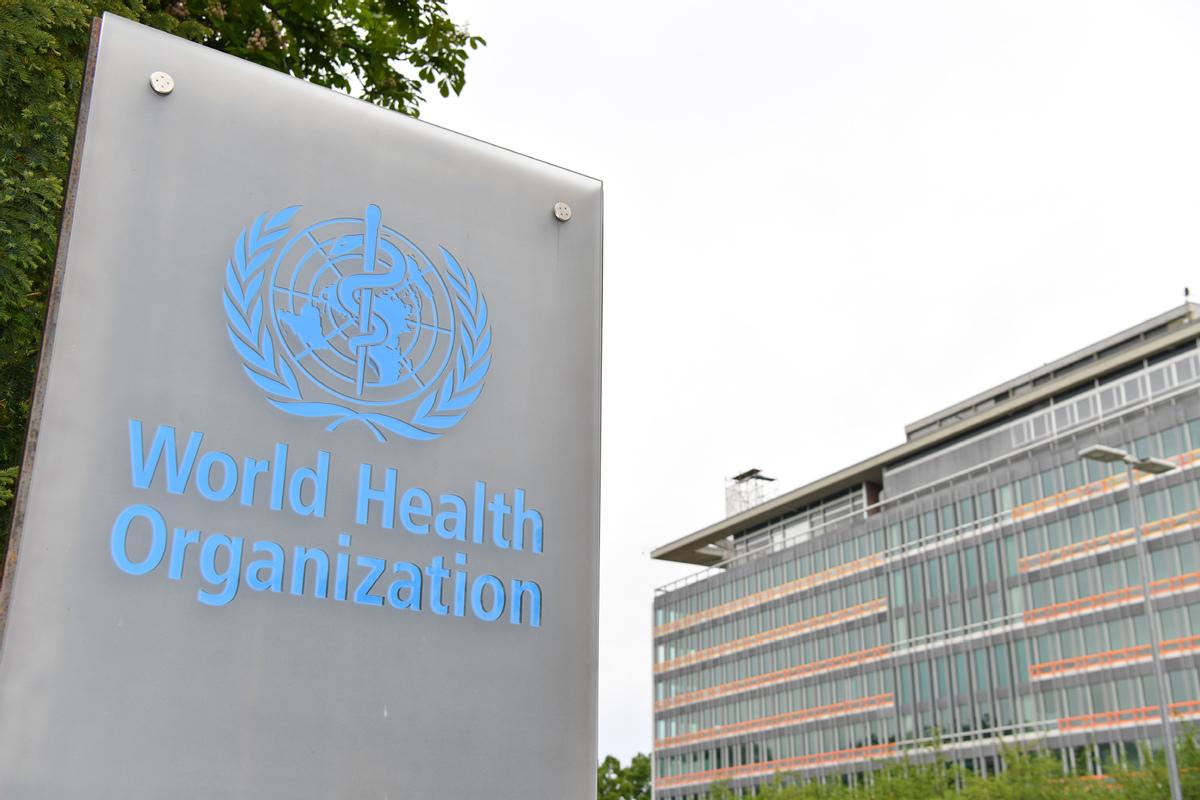Time to treat illness in global health governance

[Photo/Xinhua]
The ongoing 76th World Health Assembly has a catchy theme, "WHO at 75: Saving Lives, Driving Health For All". Yet the annual meeting of the World Health Organization's highest decision-making body in Geneva, Switzerland, this year is less likely to stand out as a defining moment in the history of the WHO.
With the world still reeling from the impacts of COVID-19, the first fully in-person World Health Assembly is expected to shape the post-pandemic global public health governance. All the 194 member countries of the WHO are set to negotiate a global accord on pandemic prevention, preparedness and response to better protect humanity from public health emergencies in future.
In retrospect, the COVID-19 pandemic has wreaked havoc across the world, exposing the lackadaisical global public health governance system. The lack of coherent and coordinated emergency response to the coronavirus revealed the vulnerability of the international community in the face of the deadly contagion. Even after more than three years into the fight against the COVID-19, millions of people in the developing Global South still remain unvaccinated.
In May 2021, WHO Director-General Tedros Adhanom Ghebreyesus lamented that the world is in a state of "vaccine apartheid", with the least-developed and developing countries that make up half of the global population getting just 17 percent of the vaccine doses.
Even COVAX, the vaccines pillar of the Access to COVID-19 Tools Accelerator under the auspices of the WHO, had dispatched only 68 million vaccine doses to the developing world, falling way short of its target of 2 billion doses scheduled for 2021. Despite all this, the United States was reportedly hoarding vaccines more than twice the size of its population. But much to our dismay, the WHA remained deafeningly silent on the US' selfish act, prompting many to lose confidence in the WHO's public health governance system.
However, no country seems bold enough to ask what happened to the vaccine promises the big powers had made to the Global South amid the waning confidence in the WHO.
Meanwhile, the White House's pledge to provide 500 million Pfizer COVID-19 vaccines for low- and middle-income countries worldwide, in addition to an earlier commitment of 600 million doses, is still fresh in the international community's mind. Needless to say, the promise remains open-ended. Washington owes the world a follow-up account of vaccine distribution. Perhaps having been prompted by the failure of the advanced countries, especially the US, to fulfil their commitment to the global fight against the pandemic, the UNAIDS Executive Director Winnie Byanyima had once commented that "empty promises will not save the world from COVID-19". Despite their tall claims, the G7 countries delivered only 13 percent of the promised 1 billion vaccine doses as of September 2021.
In this perspective, failure of the WHO to uphold its principle and improve global public health governance is undoubtedly one of the biggest problems confronting the world health body. Given the benefit of hindsight, when big pharmaceutical companies were allowed to arm-twist vulnerable countries, the ambitious dream of getting 70 percent of the nation states, big and small alike, vaccinated before the annual session of the United Nations General Assembly in 2022 became just that, an unrealistic rhetoric. Yet the unscrupulous deeds of Big Pharma were justified and the multinational pharmaceutical companies were allowed to go scot-free in the name of free market, albeit at the expense of millions of lives.
China, on the other hand, offered the COVID-19 vaccines it developed as public goods to the international community. Initially, it dispatched 265 million vaccine doses to countries worldwide. And its pledge to contribute $3 billion to support pandemic response and socioeconomic recovery in the Global South was timely and laudable. So was its willingness to share the raw materials and technology needed to produce the vaccines.
All this, however, did not spare Beijing from being targeted, as fresh calls to trace the origin of the novel coronavirus were repeatedly made at the behest of Washington. Geopolitical interests were allowed to override facts, with the US' intelligence apparatus being deployed to establish Beijing's culpability within a time frame of 90 days.
The US-led West relentlessly pressed for a fresh round of "origin-tracing investigation". Aspersions were cast on China with the authenticity and transparency of the WHO-led origin-tracing study in China questioned. Not surprisingly, more than 70 countries opposed the West's demands that were conspicuously intended to politicize the origin-tracing work, which is deemed crucial to better prepare the world in dealing with health emergencies in the times to come.
What remains baffling is that despite the lab-leak hypothesis being ruled out as "extremely unlikely" by the first WHO-China joint origin-tracing team, some Western countries, at the behest of the US, remain recalcitrant in demanding for a further probe into the hypothesis.
More bafflingly, the WHO, under the pressure of the US-led West, made a U-turn on the issue, casting doubts on the results of its own study conducted in collaboration with China. By doing so, however, the WHO could no longer conceal that the entire episode was motivated by geopolitical agenda merely to fulfil the narrow goals of a few instead of scientific truth-seeking in the interest of global public health.
While the WHA owes the international community an explanation on the episode, what matters to humankind most is whether we are prepared to tackle another pandemic with coordinated emergency response. Resources for public health governance should be wisely channelled to better shield humanity from the onslaught of any forthcoming outbreak.
And this can only be achieved with strong public health governance in the WHO, completely independent of political interference.
The author is chairman of the Belt and Road Initiative Caucus for the Asia-Pacific, Malaysia.
The views don't necessarily reflect those of China Daily.
